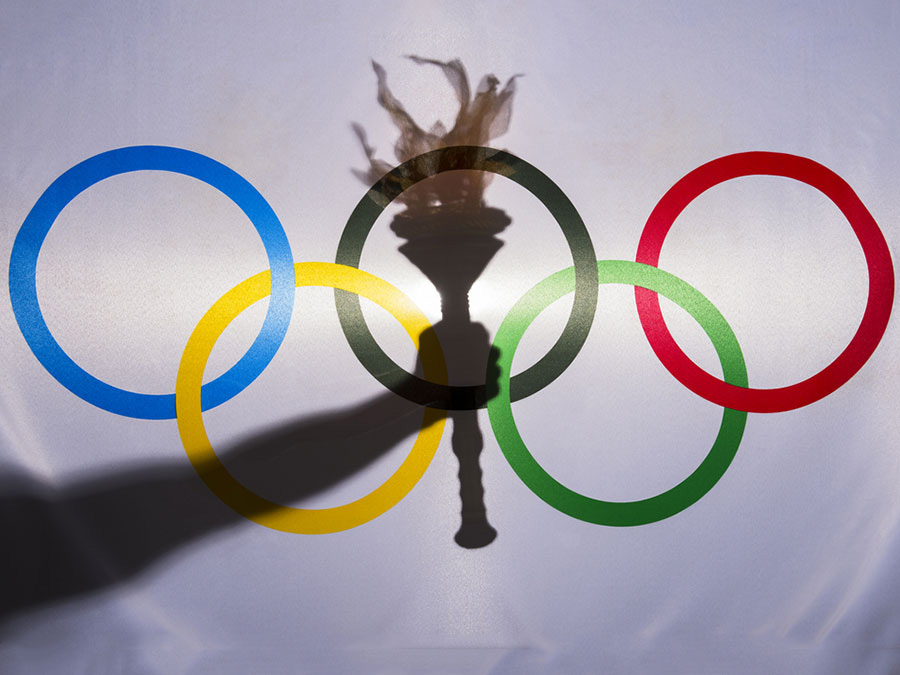Since the birth of the modern Olympic Games in 1894, the event has grown from a mere 24 countries to over 200. The language barrier has gradually become a huge challenge. After a year of delay due to the COVID-19 pandemic, the Tokyo 2020(+1) Olympics was successfully organized. To celebrate, here are seven fun facts and interesting stories about translation at the most important sporting event.

1. The 2020 Games Have 3 Official Languages: English, French and Japanese.
The Olympics always have two official languages: English and French. The others are assigned based on the languages spoken in the host country. At the 2020 Games, we have Japanese.
Needless to say, Japanese is the official language of the land of the rising sun. There are an estimated 128 million Japanese speakers worldwide, most of which live in Japanese. Japanese belongs to the Japonic language family. This language family includes 12 languages, which are mainly used in the Japanese territory. Among them, the most prominent is the Ryūkyūan language spoken largely in Okinawa and the Ainu language spoken by only a small number of indigenous elderly people in Hokkaidō.
Japanese has some unique characteristics, including a somewhat complicated grammatical system or honorifics and humble language that show respect and politeness to varying degrees. It also has a famously complex writing system. Modern Japanese is written using a combination of three different types of characters:
Kanji, mainly borrowed from Chinese.
Hiragana, or cursive script, is a form of traditional phonetic characters in Japanese, used to write Japanese, Sino-Japanese words and grammatical elements such as auxiliary verbs, inflections/conjugations, adjective endings… as well as represent sounds Chinese characters.
Katakana, also known as fragmentary kana, are often used to write foreign words.
2. Why French?
Being the official language, unless the Olympic Games are being held in a French-speaking nation, this language often seems to get the short end of the stick compared to English and the host country’s language.
That’s why every games, the International Organization of la Francophonie observes the games to make sure that French gets its due. They also appoint a language watchdog called le Grand Témoin, which translates to “the Great Witness.”
Why is French an official language of the biggest sporting event on the planet? To answer, we need to go back to the past. The original Olympics were held in ancient Greece from 776 BCE to 393 AD. After centuries of oblivion, the games were revived in 1894, with the first modern Olympics held in 1896 in Athens. The initiator of this was Baron Pierre de Coubertin, a Frenchman. He is also the one who drafted the Olympic charter, which stipulates that French is the mandatory language at the Games. This regulation has been maintained until now, perhaps to show respect to the “father” of modern Olympics.
3. What are meaning of the 2020 Olympic and Paralympic Mascots names?
The 2020 Tokyo Olympics and Paralympics have cartoon mascots named Miraitowa and Someity, respectively. Miraitowa (ミライトワ) is a combination of the two words “future” (未来, mirai) and “eternal” (永久, towa) in Japanese. Someity (ソメイティ) is named after someiyoshino, a type of cherry blossom. When pronounced, Someity sounds like the English phrase “so mighty”.
4. Many of the Olympic countries have their own Samurai characters
To celebrate the Olympics held in their home country, a group of Japanese artists have created anime samurai characters to represent many of the countries competing in the 2020 Olympics. This project is called World Flags Project. Each character has its own personality and history and is the combination of the design on the national flag and the culture of that country.
The Vietnamese samurai appeared as follows:
- Birthday: 30.11.
- Height: 1m75
- Blood type: B
- Hobby: Animal care
- Special skill: Fortunetelling
- Weakness: Schedule management
- Favorite food: Pho
- Personality: Gentle, easy-going but pretending to be serious because there are too many open-minded and free people around.
Can use shikigami to summon pet tigers (Toraichi, Toraji, Torazo), and use the pentagram to use special skils. Because he loves animals, he sometimes mistakenly summons a puppy instead of Toraichi.
Catchphrase: “Crimson onmyouji! Honor to meet you!”
(Source: Tama Duy Ngoc)
To learn about other countries, please visit the link here.
5. Translation volunteers lost their job.
As with any large international sporting event, the availability of translation and interpreting services are always a top concern at the Olympics. Along with professional translators and interpreters, host cities typically use volunteers as translators, guides and drivers.
But this year, due to COVID-19, there are no spectators. That means that many volunteers have nobody to help. If there is one positive point in this idle state, it is that volunteers can watch the competition live, from the front row, completely free. Tokyo 2020 organizers said to be “reassessing” the role of volunteers.
6. Advanced translation technology debuted at Tokyo 2020.
Given Japan’s reputation as a powerhouse of innovation and technology, there were high expectations for many aspects, including translation at the 2020 Games. Panasonic was debuting the Fukidashi, a portable translation device shaped like a comic book speech bubble. The organizers of Tokyo 2020 once intended to build a “robot village”, next to the athletes village, filled with robots to assist with translation and more. And of course, several new real-time translation apps and handheld devices were expected.
However, COVID-19 has disrupted all plans. Without the expected influx of foreign visitors, modern technologies were unnecessary and there’s simply not as much attention on translation tech this year.
7. What does that word mean?
You must have heard about the unique English skills of Japanese people. Part of the reason comes from the katakana writing system used to denote English. After “transforming” via this alphabet, the pronunciation of an English word will most likely change completely, to the point that you cannot imagine what the original word was.
Let’s take a look at some common sports terms in Japanese!
- 金メダル (kin medaru): Gold medal
- 銀メダル (gin medaru): Silver medal
- 銅メダル (dou medaru): Bronze medal
- アスリート(asurito): Athlete
- スケートボード (sukētobōdo): Skateboarding
- テニス (tenisu): Tennis
- ソフトボール (sofutobo-ru): Softball
- スポーツクライミング (supōtsukuraimingu): Sport climbing
To wrap up
Behind the biggest sporting event on the planet, there are many other interesting things. If you know something that has not been covered in this article, please share it with us.
(Source: K-International)






